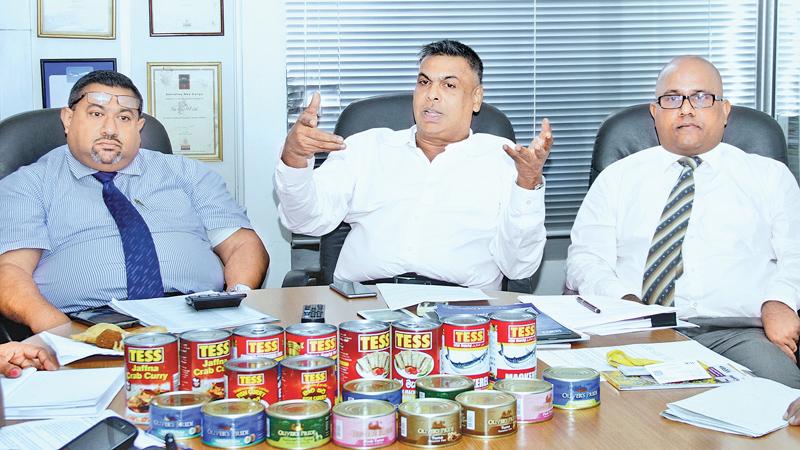
Sri Lanka spends Rs. 15 billion on canned fish imports annually and the country could save this amount if the government provides the sector with necessary facilities, an industrialist said.
“We will be able to stop the foreign exchange drain if the government has a consistent policy on the canned fish industry and supports its growth with other facilities. The industry has developed over the years and with the push from the government it will be able to contribute more to the economy,” Director/CEO, Tess (Pvt) Ltd and President, Canned Fish Manufacturing Association of Sri Lanka, Shiran Fernando said.
“Unlike other industries canned fish industry is one of the few industries which has a direct impact on all the macroeconomic objectives of the country.
From the government side it is necessary to curb canned fish imports to the country with duty adjustrnents to support the local industry.
That will give space for local manufactures to utilize their available capacities and use local raw fish by paying higher prices in the short to medium term,” he said.
As a result of increase of local production it will pave the way to achieve economies of scale. When economies of scale is achieved, it will result in reducing the average cost of production. As a result the industry will become matured enough to compete in the export markets and make adequate supply of nutrition to the local consumers, he said.
The canned fish consumption in Sri Lanka is 125,000 to 130,000 daily and 75,000 cans are locally manufactured.
WHO requirement to prevent malnutrition among the population intake of 60 grams fish per day is recommended and the current intake is 40 grams per day
“We request the government to encourage to buy Sri Lankan products under the theme ‘Be Sri Lankan buy Sri Lanka’ especially for the governmental organizations. This is a much needed way of thinking to be cultivated in the minds of Sri Lankan consumers,” Fernando said.
ln this effort main focus must be to get maximum use from rich sea that surrounds Sri Lanka and available workforce .(fishermen)
Currently Thailand processes almost one-quarter of the world’s canned tuna fish.
Being a middle income developing country with IJSD 5,574 (2015) per capita income, Thailand’s Exclusive Economic Zone ,(EEZ) covers a total area of about 316 OOO km2, but this is less than Sri Lankan EEZ 517,000) sq km.
ln developing the canned fish industry, Thailand heavily concerns of the volume of production to obtain the benefits of manufacturing economies of scale. ln the early stages of the development of the Thailand canned fish industry generous incentives were given to the manufacturers.
“Sri Lanka has all the resources to develop the canned fish industry and we request the government to consider providing necessary facilities for the industry development. We are also thankful for the government which has directed the Sathosa outlets to purchase our products. We send the first sample consignment of Tess canned fish to Australia recently. This product is Tuna in virgin coconut oil is first of its kind in the world. We expect to make this product popular in Australia,” he said.
Tess (Pvt) Ltd has invested over Rs. 200 million so far in their two factories and planning to expand capacity with the government’s support.
The Canned Fish Manufacturing Association has four members - Tess (Pvt) Ltd, Quality Food Processing Lanka (Pvt) Ltd, Slic Lanka (Pvt) Ltd and Happy Cook Lanka (Pvt) Ltd. at present.
